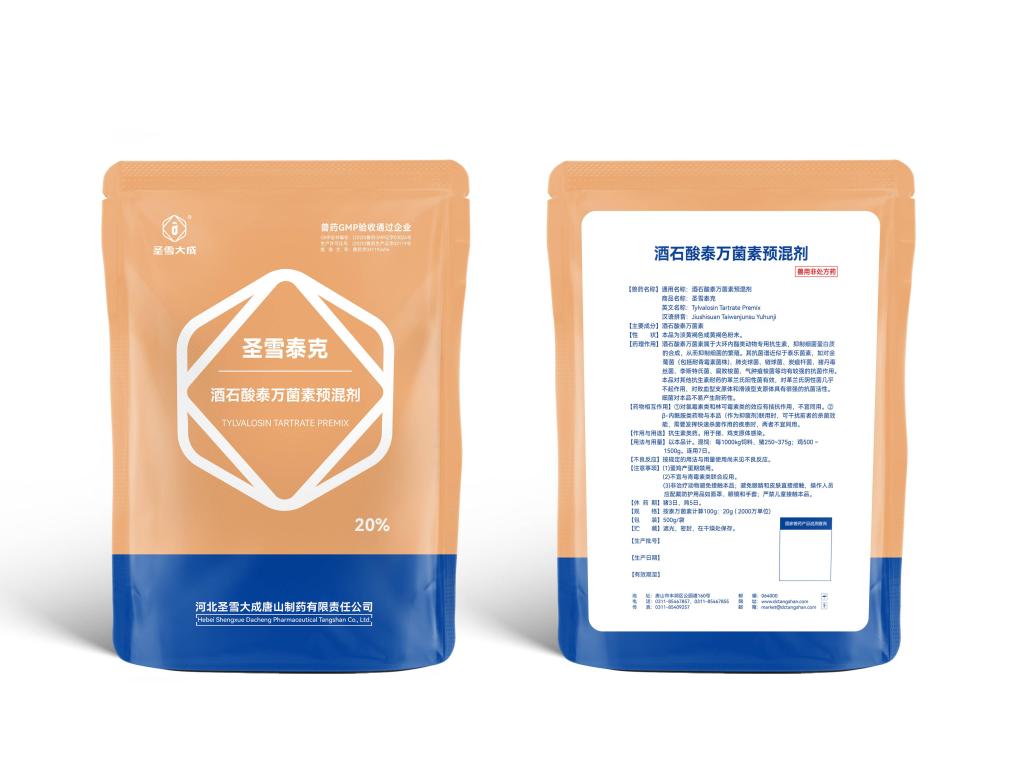Tel:+8618231198596

News
 CONTACT
CONTACT
 CONTACT
CONTACT
- Linkman:Linda Yao
- Tel: +8618231198596
- Email:linda.yao@dcpharma.cn
- Linkman:CHARLES.WANG
- Department:Overseas
- Tel: 0086 0311-85537378 0086 0311-85539701
News
Current Position:
Home >
News
>Poultry farmers rely on tylvalosin tartrate premix for disease control.
Poultry farmers rely on tylvalosin tartrate premix for disease control.
TIME:2024-07-04
Common Diseases in Poultry
Poultry are susceptible to a range of bacterial, viral, and parasitic diseases, including:
Respiratory Diseases:
Mycoplasma gallisepticum (MG): Causes chronic respiratory disease in chickens and infectious sinusitis in turkeys.
Avian Pathogenic Escherichia coli (APEC): Associated with respiratory and systemic infections in poultry.
Gastrointestinal Diseases:
Clostridium perfringens: Causes necrotic enteritis, leading to severe intestinal damage and economic losses.
Salmonella spp.: Responsible for foodborne illnesses and systemic infections in poultry.
Protozoal Diseases:
Coccidiosis: Caused by various species of Eimeria, resulting in intestinal damage and reduced growth rates.
Role of Tylvalosin Tartrate Premix
Tylvalosin tartrate is effective against a broad spectrum of bacteria and Mycoplasma species commonly found in poultry. Its mode of action involves binding to the 50S ribosomal subunit of susceptible pathogens, inhibiting protein synthesis and leading to bacterial cell death. This makes Tylvalosin tartrate a valuable tool for controlling respiratory and systemic infections in poultry, improving overall flock health and performance.
Efficacy Against Key Pathogens
Studies have demonstrated the efficacy of Tylvalosin tartrate premix in poultry:
Mycoplasma gallisepticum (MG):
Tylvalosin effectively reduces clinical signs and lesions associated with MG infections in chickens and turkeys.
It helps in controlling the spread of MG within flocks and minimizing economic losses due to respiratory disease.
Avian Pathogenic Escherichia coli (APEC):
Tylvalosin is effective against APEC strains causing respiratory and systemic infections in poultry.
It reduces mortality rates and improves survival outcomes during outbreaks of colibacillosis.
Clostridium perfringens:
Tylvalosin tartrate premix helps in preventing and treating necrotic enteritis, a common disease associated with Clostridium perfringens.
It supports intestinal health and reduces the need for therapeutic antibiotics in poultry production.
Administration and Dosage
Tylvalosin tartrate premix is typically administered orally through poultry feed, ensuring uniform distribution and optimal therapeutic levels within the flock. Dosage recommendations depend on factors such as bird age, disease severity, and specific pathogen susceptibility. Veterinary oversight is essential to determine appropriate dosage regimens and monitor treatment efficacy.
Regulatory Considerations
The use of Tylvalosin tartrate in poultry farming is subject to strict regulatory oversight to ensure food safety, animal welfare, and environmental protection:
Regulatory Approval: Tylvalosin tartrate premix formulations must undergo comprehensive evaluation and approval by regulatory agencies, such as the FDA in the United States and the European Medicines Agency (EMA) in Europe. Approval processes include safety assessments, efficacy studies, and compliance with manufacturing standards.
Withdrawal Periods: To prevent antibiotic residues in poultry products intended for human consumption, regulatory agencies establish withdrawal periods. During this period, treated birds must not be slaughtered. Adherence to withdrawal periods is crucial to meet food safety standards and consumer expectations.
Antimicrobial Stewardship: Responsible use of Tylvalosin tartrate and other antibiotics is essential to mitigate the development of antimicrobial resistance. Veterinary oversight, adherence to dosage guidelines, and surveillance of resistance patterns contribute to effective antimicrobial stewardship practices.
Challenges and Considerations
The use of Tylvalosin tartrate premix in poultry farming faces several challenges:
Antimicrobial Resistance: Prolonged and inappropriate use of antibiotics can contribute to the emergence of resistant bacterial strains. Continuous monitoring of resistance patterns and implementation of resistance management strategies are critical to preserving the effectiveness of Tylvalosin tartrate.
Cost of Production: The cost of Tylvalosin tartrate premix and associated treatment protocols can impact its adoption, particularly for small-scale poultry producers. Cost-effective strategies, such as optimizing dosage regimens and improving feed efficiency, help mitigate economic barriers.
Regulatory Compliance: Keeping abreast of evolving regulatory requirements and demonstrating compliance with safety and efficacy standards require ongoing investment in research, development, and regulatory affairs.
Future Perspectives
The future of Tylvalosin tartrate premix in poultry farming hinges on innovation, sustainability, and collaborative efforts:
Research and Development: Continued research into novel formulations, delivery systems, and combination therapies can enhance the efficacy and safety profile of Tylvalosin tartrate. Innovation in disease prevention and management practices also plays a crucial role.
Sustainability Initiatives: Embracing sustainable farming practices, reducing antibiotic usage through preventive measures, and promoting poultry health and welfare contribute to long-term sustainability in poultry production.
Global Collaboration: International cooperation among regulatory agencies, veterinary professionals, and industry stakeholders facilitates harmonization of standards and best practices in antibiotic use and resistance management.
Conclusion
Tylvalosin tartrate premix is a valuable asset in the management and treatment of infectious diseases in poultry. Its broad-spectrum activity, convenient administration via feed, and proven efficacy against key pathogens make it indispensable in modern poultry farming. Regulatory oversight ensures its responsible use, while ongoing research and innovation drive advancements in poultry health management. By addressing challenges and embracing sustainable practices, the poultry industry can optimize the use of Tylvalosin tartrate premix, safeguard flock health, and meet global food safety standards.
- Tel:+8618231198596
- Whatsapp:18231198596
- Chat With Skype







